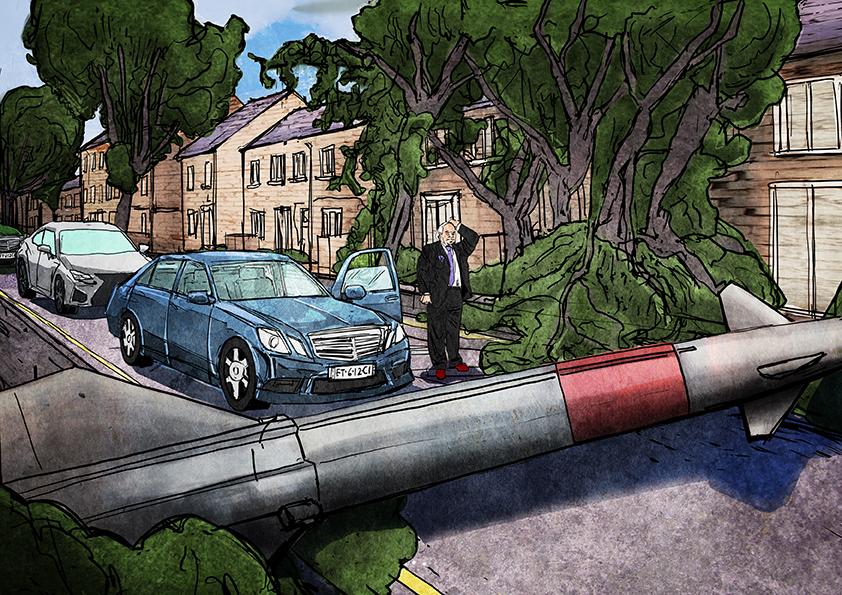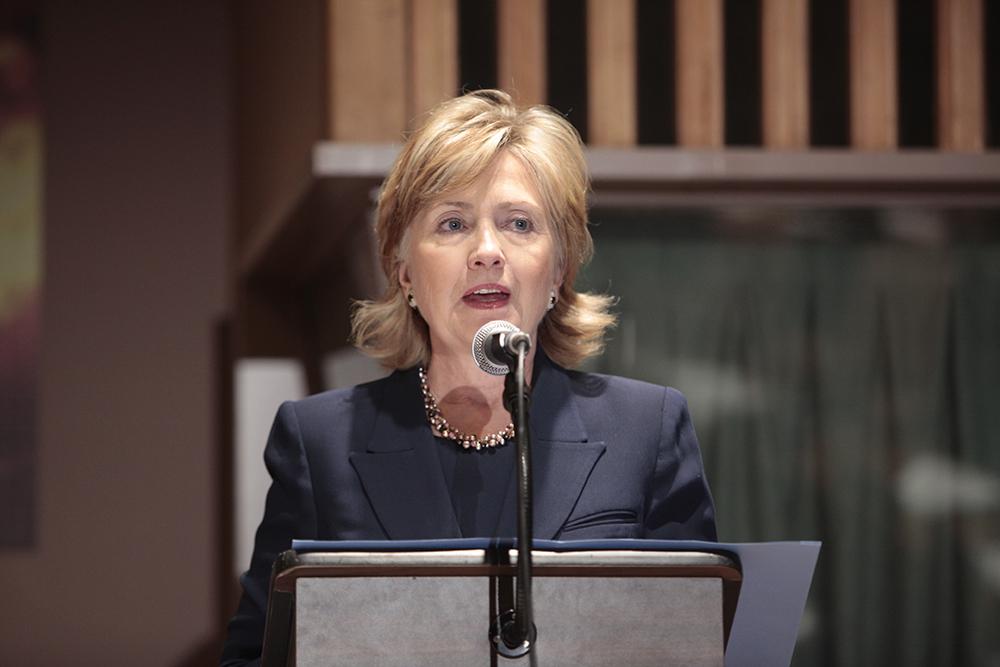The meaning of the word ‘impotence’.

The Conference on Disarmament was established
in 1979 out of the 1978 Special Session on Disarmament in the United Nations General Assembly. The UN heralds the conference as “the single multilateral negotiating forum of the international community”. The CD has the crucial task of working towards international peace and security by negotiating measures towards nonproliferation and disarmament. The CD is not in fact a conference but a standing body comprised of 65 permanent member states including the P6, Nuclear Nonproliferation Treaty (NPT) states, and those countries with nuclear weapons that are not part of the NPT (India, Pakistan, and North Korea).
The CD and its predecessors have negotiated several successful treaties including the Biological Weapons Convention in 1975, the Convention on Certain Conventional Weapons in 1983, and the Comprehensive Nuclear Test Ban Treaty (CTBT) in 1996. However, the conclusion of CTBT negotiations marks the beginning of a 17-year stagnation within the conference that persists to this day. Not only has the CD failed to successfully negotiate a treaty since the CTBT, according to Randy Rydell, Senior Political Affairs Officer at the United Nations Department of Disarmament Affairs in New York City, the members states have spent the interim tangling with each other with no agreement at all on priorities. And indeed, not only have member states failed to successfully negotiate a treaty, but they have also been unable to agree on a program of work.
The CD has several initiatives it is seeking to achieve including the reduction of nuclear arsenals, the placement of a ban on the production of fissile material and the prevention of an arms race in outer space. Additionally the CD attempts to ensure against the use of nuclear weapons by non-nuclear weapons states, to work towards transparency in armaments, and to prevent the production of new types of weapons of mass destruction.
... many believe negotiations should be held outside of the framework of both the CD and the United Nations.
The mechanism of the CD is governed by “consensus rule”, meaning that for any decision to be made the member states must agree unanimously. Thus, in order to even begin negotiations, every country must agree on the issue to be negotiated. Currently, member states cannot choose which agenda items they think should receive priority. Mr. Rydell believes that the disagreement boils down to the double standard created by the NPT that allows some states to have nuclear weapons whilst others are forbidden. These differences represent very different national security priorities between states. Thus broadly, the nuclear-weapon states are reluctant to enter into negotiations regarding weapon reductions in favor of working towards a fissile material cut-off treaty, whilst nonnuclear-weapon states feel that reduction of existing stockpiles is the most urgent item on the agenda.
But the problem may be even more fundamental. It is the very nature of multilateral diplomacy that different states have different priorities.In recent years, there has been a growing occurrence among states to protect their own national security agendas. This coupled with eroding trust amongst States has led to what has been called a loss of the “political will” to compromise and has created this severe stagnation. Mr. Kassym-Jomart Tokayev, Director-General of (UNOG) acknowledges that “Not only do the members of the Conference disagree over its priorities, but the consensus rule, which has served this body so well in the past, is currently used as a de facto veto power to stall every attempt to break the impasse”.

Indeed, many countries attempt to use their de facto veto power to push through their own national security agendas saying they will only approve a given mandate, for example, if another mandate is approved or denied. Given the plurality of states and security concerns, Theresa Hitchens, director of the United Nations Institute on Disarmament Research (UNIDIR) questioned the validity of this system, asking whether it was a responsible use of diplomacy to “deny so many States the chance to contest conflicting views and insert their own national security concerns into key agenda items” at the First Committee meeting of the UN General Assembly in October of 2011.
These problems can be clearly seen in the current attempts to negotiate a Fissile Material Cutoff Treaty (FMCT). According to Hellmut Hoffman, German Ambassador to the CD, it is Pakistan and Pakistan alone prohibiting negotiations; utilizing the consensus rule to impede progress. It has been suggested that Pakistan is purposefully frustrating negotiations as a response to the 123 Agreement between the United States and India, provisioning American support for the Indian Nuclear program. Given the conflict between India and Pakistan, the latter refuses to sign the FMCT without receiving a deal comparable to that being given to India.
In light of the apparent breakdown of the CD, many believe negotiations should be held outside of the framework of both the CD and the United Nations. This view is strengthened by concerns that the prolonged deadlock may lead to an erosion of the legitimacy of the CD and the United Nations as a whole in the arena of disarmament affairs. Reiner Braun, director of the German branch of the International Association of Lawyers Against Nuclear Weapons (IALANA) suggests that in order for negotiations to be successful they must be unwedded from the crippled UN framework. Braun calls for a Nuclear Weapons Convention following the example of the Chemical Weapons Convention (CWC), which was successfully negotiated outside of the CD and outside of the UN. Negotiations outside of the CD do not require unanimous agreement and therefore, says Braun, those countries who have the political will to work actively towards disarmament can do so undeterred by those countries less willing to negotiate.
Member states cannot agree on the precise causes or what actions to take to bring about solutions.
Many CD member states such as Austria, Norway, Canada, and Mexico have also suggested that the time has come to set aside the CD. At the 20th meeting of the General Assembly, Norway’s representative asserts that “time is running out” and that “there are viable alternatives” to negotiations within the CD. Such negotiations are not unprecedented. In fact, in recent years more treaties have been negotiated successfully outside of the UN than within. In addition to the CWC, the Ottawa Treaty in 1997 and the Oslo Treaty in 2008 were negotiated successfully whilst CD member states continued to squabble. Indeed, the example of the Ottawa treaty shows that although not all countries agree, a successful treaty may eventually lead to additional countries ratifying. Though countries such as Finland initially rejected the convention, after its ratification these countries came on board and ratified the treaty as well. This is another strong argument for treaties outside of the UN: that negotiations may proceed before every country is on board.
However not all are in favor of setting aside the CD. At the same meeting, Rodolfo Reyes Rodriguez , President of the Conference on Disarmament warns that replacing the CD with alternative arrangements would be “a dangerous step backwards”. The problem of the stagnation of the CD continued to be explored. During this meeting, Finland’s representative, too, defended the CD as “irreplaceable” as a multilateral negotiating forum. Moreover, the CD’s past successes provide evidence of its potential and a strong argument for not setting it aside so readily. Accordingly, the UN and the CD have launched an initiative for the revitalization of the Conference.
And yet, the very problems the CD and member states are struggling to overcome are impeding the quest for a solution. Member states cannot agree on the precise causes or what actions to take to bring about solutions. Thus, ironically enough, progress towards overcoming stagnation is, itself, stagnating. This more than anything is perhaps an argument for, if not setting aside the CD, then at least exploring alternative negotiating forums.
Related Media:
-
Interview: Hellmut Hoffman
- Interview: Valere Mantels
Further Reading:
- Statements from the Secretary-General of the Conference on Disarmament.
- Report from the United Nations Institute for Disarmament Research: Getting the Conference on Disarmament Back to Substantive Work, 2009.
- Address from Secretary-General Ban Ki-moon to High-level Meeting on Revitalizing the Work of the Conference on Disarmament and Taking Forward Multilateral Disarmament Negotiations, 24 September 2011.
- Conference on Disarmament, Proposal for a Programme of Work, 2012.
- The Economist, 24 March 2012, Why the CD is Pointless.
Bibliography:
"Getting the Conference on Disarmament Back to Substantive Work: Food for Thought." United Nations Institute on Disarmament Research, 2009. Web. 31 July 2012.
"If Conference on Disarmament Cannot Break 15-Year-Long Deadlock, United Nations Could ‘Lose Legitimacy in Disarmament Affairs’, First Committee Told." UN News Center. UN, 21 Oct. 2011. Web. 31 July 2012.
"Introduction to the Conference on Disarmament." The United Nations in the Heart of Europe. UNOG - The United Nations Office at Geneva, n.d. Web. 31 July 2012.
"Perception in First Committee ‘World Cannot Afford to Stand Still’ on Disarmament, but Divergent Views Emerge on Reasons for Stagnation, Ways to Overcome It." UN News Center. UN, 25 Oct. 2011. Web. 31 July 2012.
